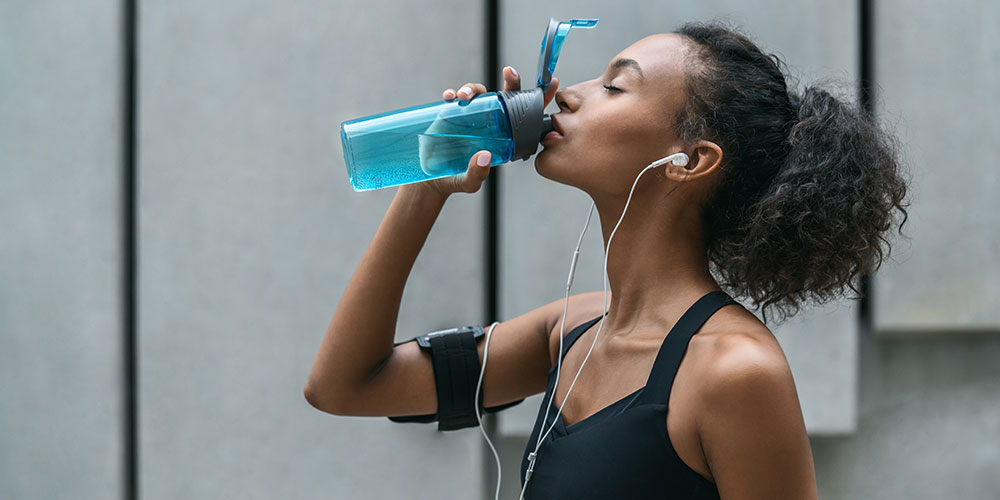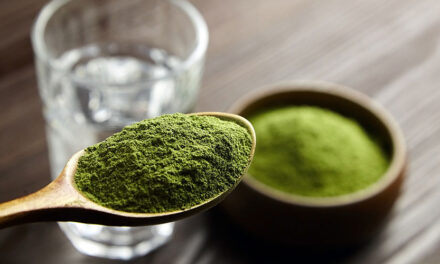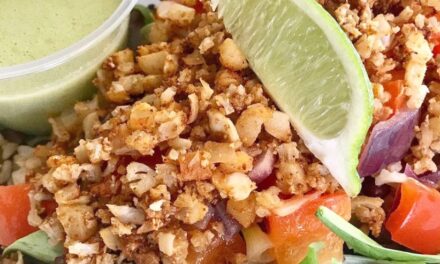With summer in full swing, adequate hydration is a concern, but beware of marketing claims about trendy and pricy beverages promising to replete energy, restore electrolyte balance, reduce chronic disease, or assist in weight loss. Investigate for clarity on the best beverages to avoid unhelpful or potentially harmful supplements.
Alkaline Water
THE CLAIMS:
The marketing of alkaline water promises to improve hydration and digestion and reduce acidity in the bloodstream, creating a less acidic environment, which helps lower the risks of inflammatory conditions such as cancer or osteoporosis.
THE CATCH:
Blood pH is tightly regulated, and no food or beverage can neutralize pH. All food and fluids consumed by mouth are processed via the digestive tract, which involves digestion in the stomach before absorption throughout the small intestine. Stomach contents are highly acidic, which provides the environment needed to break down food into nutrients small enough to be absorbed into the bloodstream. The highly acidic stomach contents enter the small intestine, making them less acidic to avoid killing the healthy bacteria designed to facilitate absorption. Alkaline water is immediately neutralized when entering the acidic digestive tract, and it has not been shown to reduce the overall pH levels of the body to any significant degree in human studies. Additionally, it has not been correlated with improved overall health, decreased cancer risk, or increased bone density.
THE CLARITY:
Save your money and opt for tap or bottled water. Invest in an at-home water filtration system for an eco-friendly approach, and use refillable water bottles. Our bodies can maintain pH balance without alkaline water or other pH-altering strategies!
Loaded Tea
THE CLAIMS:
Loaded tea is designed to provide energy, improve mental clarity and focus, boost metabolism, curb appetite, and support weight loss.
THE CATCH:
Loaded teas are a recent phenomenon primarily powered by Herbalife. Fans of loaded teas use them as meal replacements or in conjunction with weight loss diets. Since loaded teas are considered supplements and are not regulated like typical foods and beverages, disclosing ingredients isn’t required. However, loaded teas typically consist of sugar-free flavored syrups, added colorings, a highly caffeinated packet of various supplements from Herbalife, and occasionally tea. The remaining ingredients generally are a “proprietary” cocktail of herbs that, according to the Natural Medicines database, may not be suitable for children, adolescents, or individuals with certain health conditions. Additionally, high caffeine/stimulant content on an empty stomach can lead to rapid heart rate, increased blood pressure, and the potential for low blood sugar. Despite clever marketing, they are essentially energy drinks in disguise.
THE CLARITY:
Consider eating your energy with balanced meals containing protein, carbohydrates, and fat and fuel pre-workouts with easily digestible carbohydrates. Save money and swap your loaded “teas” for smoothies, lemonade, iced tea, or other refreshing drinks.
Sports Drinks
THE CLAIMS:
‘Potassium-packed,’ ‘low-calorie,’ and ‘no sugar added’ electrolyte beverages supercharge your workout and provide the perfect balance of electrolytes for rehydration.
THE CATCH:
While electrolyte repletion beverages can be helpful when participating in long-duration, high-intensity training, not all “sports drinks” are created equal. Electrolyte repletion drinks should have a balance of water, sodium, sugar, and potassium, crucial in repleting fluids and electrolytes lost in sweat. Still, many beverages marketed as sports drinks and electrolyte replacements contain negligible amounts of sodium or may be marketed as “sugar-free” and contain high levels of caffeine for a synthetic energy boost with few electrolytes. While some athletes are attracted to more “natural” beverages like potassium-rich coconut water, it contains very little sodium and may have inadequate carbohydrates – both crucial in maintaining hydration and energy status during exercise.
THE CLARITY:
Well-formulated sports drinks can help maintain hydration and electrolyte balance while exercising, training, or participating in competitive sports. Become label savvy and avoid “sports drinks” that contain limited amounts of electrolytes and high levels of caffeine. Aim for sports beverages containing a minimum of 180 mg sodium, 7-9.5 g of carbohydrate/sugar solution, and 60-75 mg potassium per 8 oz serving.
The benefits of alkaline water, nutritional teas, and some sports beverages are mostly over-inflated and unsupported by science. Skip the fads and stick with tried-and-true methods of hydration and electrolyte replacement!
For personalized guidance when integrating Intuitive Eating and sports nutrition into your fueling strategy, reach out to the Registered Dietitians at Memphis Nutrition Group.
By Emily Gause, MA, RDN, LDN







